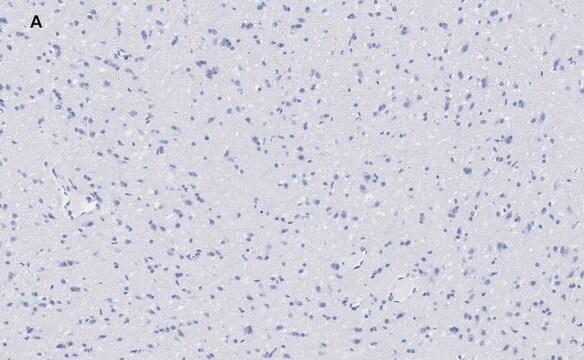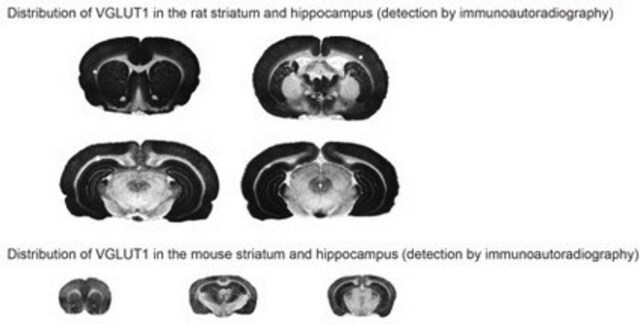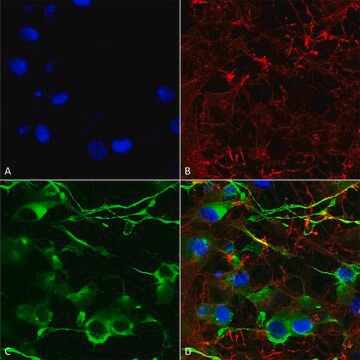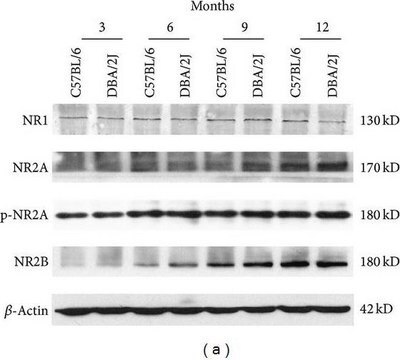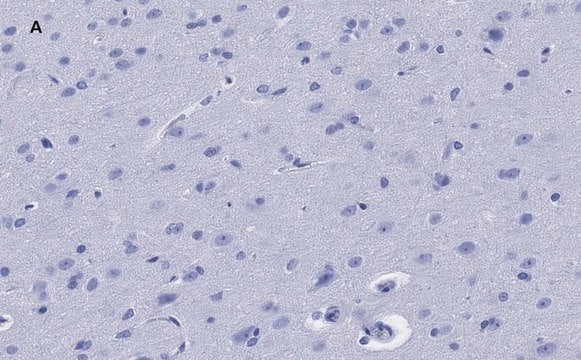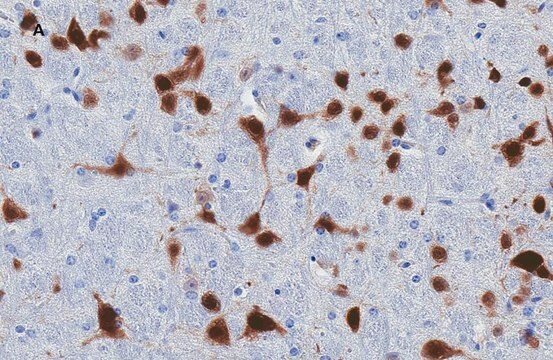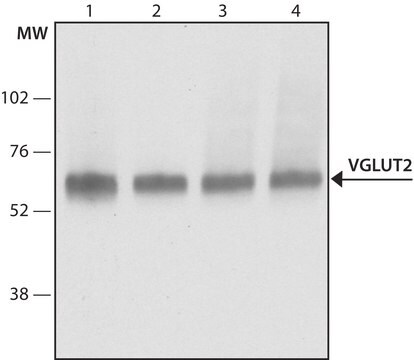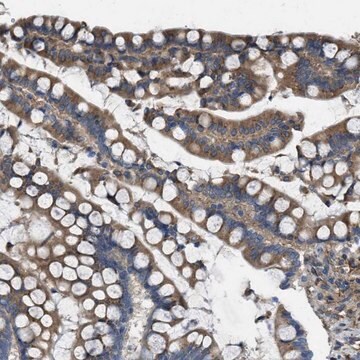ZMS1109
Anti-VGLUT1 Antibody, clone 3C10.2 ZooMAb® Mouse Monoclonal

recombinant, expressed in HEK 293 cells
Sinonimo/i:
Brain-specific Na(+)-dependent inorganic phosphate cotransporter, Solute carrier family 17 member 7, Vesicular glutamate transporter 1
About This Item
Prodotti consigliati
Origine biologica
mouse
Livello qualitativo
Ricombinante
expressed in HEK 293 cells
Coniugato
unconjugated
Forma dell’anticorpo
purified antibody
Tipo di anticorpo
primary antibodies
Clone
3C10.2, recombinant monoclonal
Descrizione
recombinant, expressed in HEK 293 cells
Nome Commerciale
ZooMAb® learn more
Forma fisica
lyophilized
Purificato mediante
using protein G
Reattività contro le specie
human, rat, mouse
Confezionamento
antibody small pack of 25 μL
Caratteristiche più verdi
Waste Prevention
Designing Safer Chemicals
Design for Energy Efficiency
Learn more about the Principles of Green Chemistry.
Convalida avanzata
recombinant expression
Learn more about Antibody Enhanced Validation
sustainability
Greener Alternative Product
tecniche
immunocytochemistry: suitable
immunofluorescence: suitable
immunohistochemistry: suitable
western blot: suitable
Isotipo
IgG1
Sequenza dell’epitopo
Unknown
N° accesso ID proteina
N° accesso UniProt
Condizioni di spedizione
ambient
Temperatura di conservazione
2-8°C
Informazioni sul gene
rat ... Slc17a7(116638)
Descrizione generale
Specificità
Immunogeno
Applicazioni
Evaluated by Western Blotting in Rat brain tissue lysate.
Western Blotting Analysis: A 1:10,000 dilution of this antibody detected VGLUT1 in Rat brain tissue lysate.
Tested Applications
Western Blotting Analysis: A 1:10,000 dilution from a representative lot detected VGLUT1 in Human brain and Mouse brain tissue lysates.
Immunofluorescence Analysis: A 1:100 dilution from a representative lot detected VGLUT1 in Rat brain tissue sections.
Immunocytochemistry Analysis: A 1:100 dilution from a representative lot detected VGLUT1 in SH-SY5Y cells.
Immunohistochemistry (Paraffin) Analysis: A 1:100 dilution from a representative lot detected VGLUT1 in Human brain and Rat brain tissue sections.
Note: Actual optimal working dilutions must be determined by end user as specimens, and experimental conditions may vary with the end user.
Descrizione del bersaglio
Stato fisico
Ricostituzione
Stoccaggio e stabilità
Altre note
Note legali
Esclusione di responsabilità
Non trovi il prodotto giusto?
Prova il nostro Motore di ricerca dei prodotti.
Codice della classe di stoccaggio
11 - Combustible Solids
Classe di pericolosità dell'acqua (WGK)
WGK 1
Punto d’infiammabilità (°F)
Not applicable
Punto d’infiammabilità (°C)
Not applicable
Certificati d'analisi (COA)
Cerca il Certificati d'analisi (COA) digitando il numero di lotto/batch corrispondente. I numeri di lotto o di batch sono stampati sull'etichetta dei prodotti dopo la parola ‘Lotto’ o ‘Batch’.
Possiedi già questo prodotto?
I documenti relativi ai prodotti acquistati recentemente sono disponibili nell’Archivio dei documenti.
Il team dei nostri ricercatori vanta grande esperienza in tutte le aree della ricerca quali Life Science, scienza dei materiali, sintesi chimica, cromatografia, discipline analitiche, ecc..
Contatta l'Assistenza Tecnica.